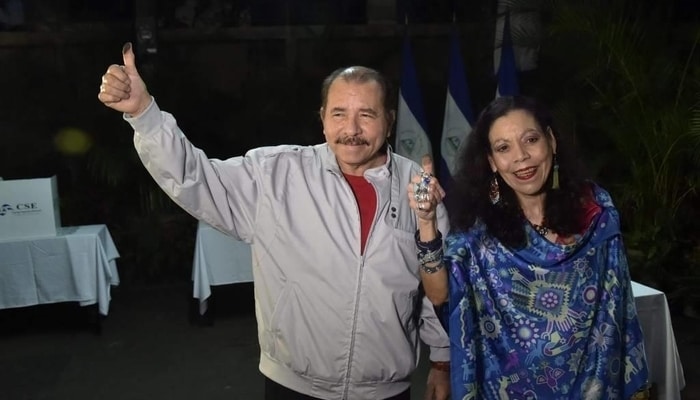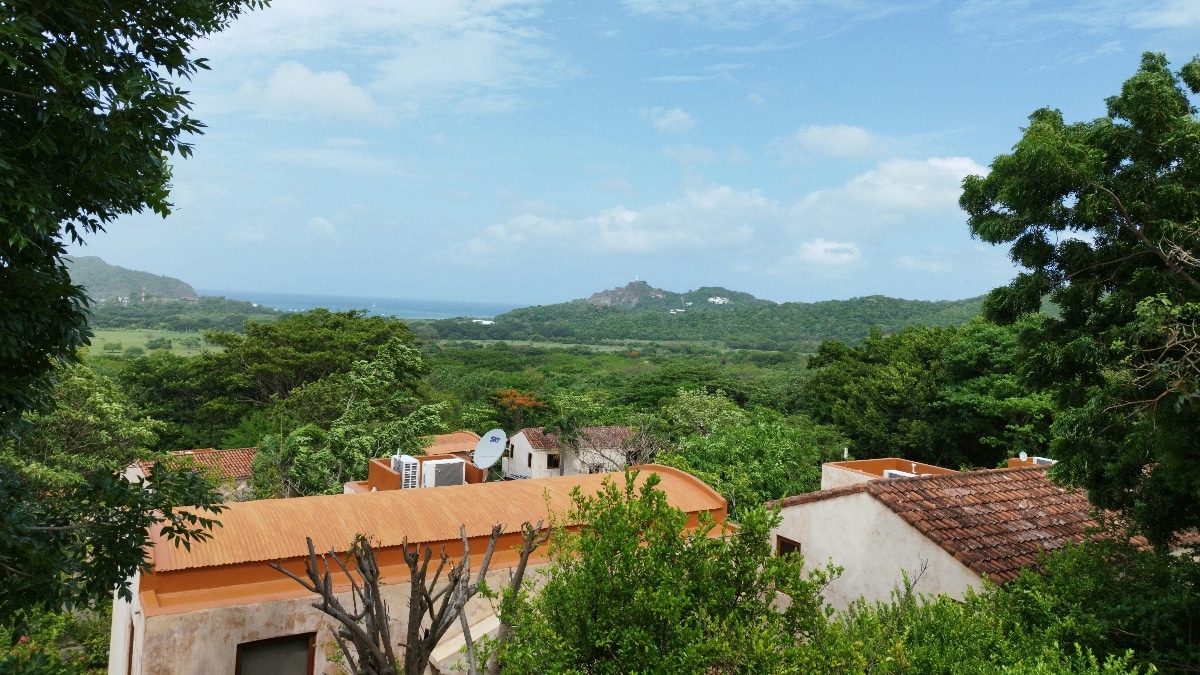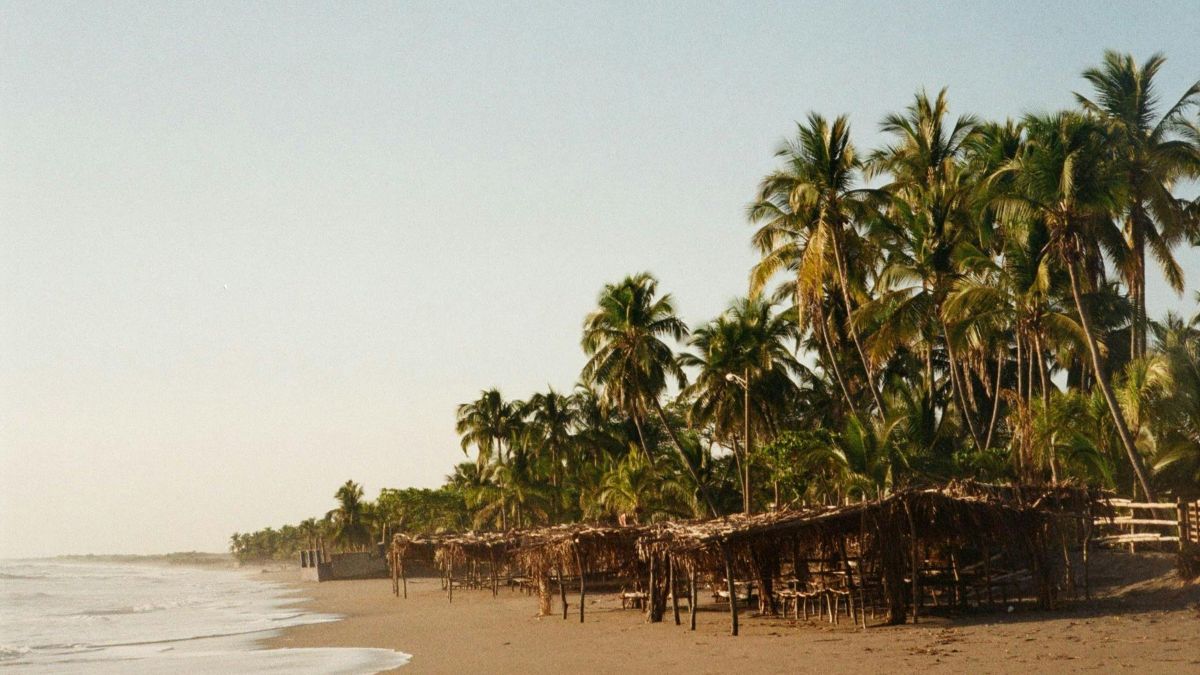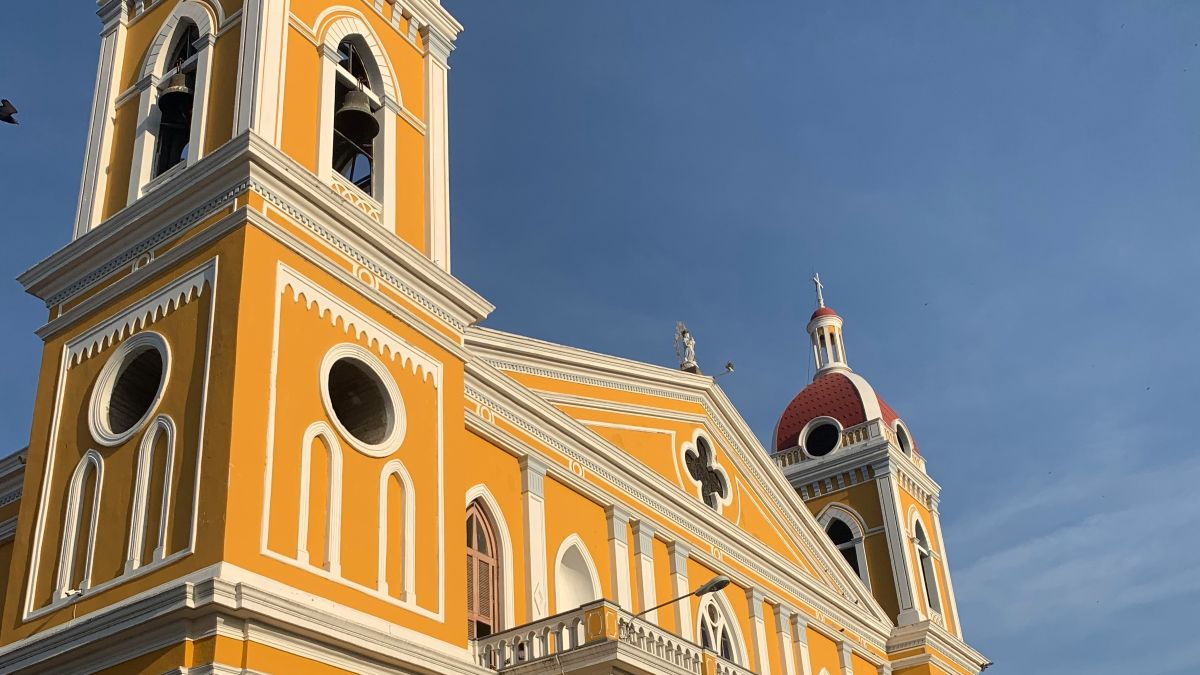November 5, 2006 was Nicaragua’s last free and fair election, won by Daniel Ortega. He took office for the second time on January 10, 2007. To mark the occasion, we rewrite in English an article published today in Confidencial by Nicaraguan journalists Ivette Munguía and Arlen Cerda.
Broken democratic promises. An authoritarian regime and a bloody dictatorship supported by a police state.
Today Daniel Ortega celebrates 14 years as President of Nicaragua. After winning the 2006 election, he arrived with a message of “reconciliation and national unity”. But 14 years later, Nicaragua is as divided and polarized as never before.
Below are 14 things to know about Ortega’s 14 years in power.
Daniel Ortega cumple hoy 14 años consecutivos en la Presidencia de Nicaragua. CONFIDENCIAL resume catorce cambios que el régimen orteguista ha impulsado, anulando el sistema democrático para atornillarse en el poder a través de una dictadura ⬇️ https://t.co/RXpznotrfS
— Confidencial Nicaragua (@confidencial_ni) January 10, 2021
1. He has absolute control of the powers of state
After the infamous 2003 pact between Ortega former president Arnoldo Alemán to share the powers of state between them, today Ortega controls it all, plus the police and army.
Under the auspices of giving power back to the people, Ortega created “Citizens Power Councils” (CPCs) around the country.
Today these councils act as a form of internal intelligence service for the regime. They spy on fellow citizens and form shock forces against all kinds of demonstrations, dissent or complaint.
Ortega also controls the National Assembly, which gives pass to all his initiatives. He controls the collapsed electoral system and the Supreme Court of Justice (CSJ).
2. He wasted millions of dollars of Venezuelan cooperation
After returning to power, Ortega incorporated Nicaragua into the Bolivarian Alliance of the Americas (ALBA).
This allowed him to import ten million barrels of oil a year from Venezuela through the PetroCaribe initiative . In March 2007, he created Alba de Nicaragua S.A (Albanisa), a private company joint owned by the Venezuelan (51%) and Nicaraguan (49%) state oil companies.
Ortega thus “privatized” more than $3.86 billion of oil money with no accountability or public scrutiny. With Venezuela, he promoted Albanisa, which has decisive weight in Nicaragua’s energy sector. The Ortega family also controls other energy interests in Nicaragua.
3. He was the master of authoritarian corporatism
Ortega imposed an authoritarian corporatist system, to co-govern with big business, at the expense of transparency and outside of democratic institutions.
For over a decade, he maintained a “consensus” relationship with big business to negotiate economic issues without interlocutors.
The deal is, Ortega allows them to do business and get some tax exemptions in exchange for full power.
The Superior Council of Private Enterprise (Cosep) had an impact on the approval of 124 laws from 2008 to 2017, and were represented in over 40 public institutions. This changed in 2018 after the April Rebellion when the business community largely turned against Ortega.
But according to Bayardo Arce, and economic adviser to the Nicaraguan presidency, the regime will look for ways to “sit down” with the business sector again this year.
As the crisis in Nicaragua escalates and the world looks away, Daniel Ortega conforms to the archetypical dictator stereotype of denial, just like Somoza, Ceaușescu, Gadaffi, and tyrants before him.https://t.co/F5O6jtWSxF#Nicaragua #SOSNicaragua
— CentralAmericaLiving (@VidaAmerica) July 12, 2018
4. Over the years, he’s customized the constitution to keep himself in power
After he took office, Ortega made clear his intention to stay in power, despite Nicaragua’s constitution allowing single-term presidencies.
In 2009, his magistrates at the CSJ declared Article 147 of the constitution, which prohibited presidential reelection, “unconstitutional”. This paved the way for Ortega’s second consecutive term after the 2011 election..
In 2014, a new constitution allowing multiple terms became law and Ortega ran again in 2016. This time, he installed his wife as vice-president.
The new constitution also scrapped the rule saying a winning presidential candidate needs at least 35% of votes. This makes it easier for Ortega to avoid run off elections.
With another election looming in 2021, Ortega is looking at ways to further muddy the waters of transparency. He’s also blocking the opposition from running against him with new laws (more below).
5. A servile police and a complicit army
To stay in power, Ortega counts on the cooperation and partisanship of the police and army.
He kept Aminta Granera as head of the police for two terms by presidential decree, ignoring the legal term limits for the office. In 2018, Francisco Díaz, an in-law of Ortega, replaced Granera.
In February 2020, General Julio César Avilés began his third consecutive term as head of the army, after Ortega twice extended his position.
6. He keeps his loyal magistrates and other officials on board, even after their term limits expire
To maintain control of the electoral and judicial powers, Ortega retains his loyal magistrates even after their terms of office end. He does this through his majority in the National Assembly, which steamrolls Ortega’s laws through without debate.
For over a year and a half, the CSJ, the Supreme Electoral Council (CSE), and the Comptroller General of the Republic (CGR) have had leaders with expired term limits.
In the CSJ, 12 of 16 magistrates have expired positions, and seven out of nine magistrates have expired positions in the CSE.
7. The stranglehold on independent journalism
Ortega has cracked down on a free and independent press over the past 14 years, especially since 2018. He’s handed control of TV channels and radio stations to his children to promote his form of “uncontaminated” communication.
In 2019, repression measures against the independent press sent over 80 journalists into exile.
At least 20 media broadcasts have closed since 2007. In 2018, he ordered confiscation of the Confidencial and 100% Noticias facilities, jailing journalists Miguel Mora and Lucía Pineda Ubau for six months. The confiscated buildings are now in government hands for supposed social projects.
#English | Carlos F. Chamorro affirmed that we are witnessing an “illegal confiscation”. The situation, he noted, demonstrates that “In Nicaragua, there’s no law, no Constitution, no Supreme Court,” that holds weight ⤵️ https://t.co/N8XhZTM73E
— Confidencial Nicaragua (@confidencial_ni) December 26, 2020
8. The Nicaragua Canal and other failed megaprojects
Ortega promised many megaprojects to provide jobs in Nicaragua, but nothing panned out.
The biggest failure is the supposed Grand Oceanic Canal. Despite much fanfare to build a canal across Nicaragua, nothing happened. The thing fizzled out, but not before lands along its proposed route were taken.
The touted “El Supremo Sueño de Bolívar” refinery project never happened either. There was no Chinese satellite, no hydroelectric plant, and no deep-water port in the South Caribbean.
On the contrary, poverty and unemployment have skyrocketed. Ortega marks 14 years in power with 2.4 million Nicaraguans living in poverty, and close to 750,000 unemployed.
9. Public services and INSS in disarray
2012 was the last year the Nicaraguan Social Security Institute (INSS) accumulated a surplus. After that, the curve collapsed and there are no signs of improvement. In 2018, the INSS deficit was a staggering $135.7 million at today’s exchange rate.
The INSS lost 158,000 contributors in 2018, another 15,069 in 2019, and the bleeding continues.
Despite the promises, the costs of basic services continue to rise. In the meantime, the government promotes welfare conditional on party loyalties. Reports came in after last year’s hurricanes of towns with non-Sandinista mayors receiving less aid.
10. Death in the countryside
In rural Nicaragua, summary executions have become some kind of de facto “law” alongside army operations against rearmed groups, and executions of peasants and political opponents.
In February 2017, a Confidencial investigation revealed that from 2011 to 2017, the police and army reported 14 clashes or operations against alleged criminal groups, accused of cattle rustling or drug trafficking.
These groups were never classified as political, although they identified themselves as such.
Of 25 alleged rearmed leaders, whom the police and army called criminals or drug traffickers, 22 have been assassinated.
One leader, Gerardo de Jesús Gutiérrez, known as “el Flaco”, was assassinated in Honduras on December 9, after years in exile.
In March 2020, another Confidencial investigation confirmed the execution of at least 30 political activists in northern Nicaragua between October 2018 and December 2019.
Ejecuciones en el campo: La masacre contra los campesinos. Treinta campesinos opositores fueron asesinados entre octubre 2018 y diciembre 2019 por motivaciones políticas, confirma investigación de Confidencial, en alianza con Connectas https://t.co/LPmyALqFiF
— Carlos F Chamorro (@cefeche) March 3, 2020
11. The 2018 crackdown and repression
In April 2018, Ortega responded to pension reform protests with murder and repression. Between April and September of 2018, his forces murdered 325 people, with dozens disappeared, and thousands wounded. There were some 1,600 political prisoners and over 100 remain in prison. Over 100,000 Nicaraguans fled the country.
According to the Inter-American Commission on Human Rights (IACHR), the Ortega regime committed crimes against humanity in 2018.
The regime expelled the IACHR group of experts put together to investigate the violence in December 2018.
Daniel Ortega’s dictatorship expelled the Inter-American Commission on Human Rights (IACHR) from Nicaragua on Wednesday. https://t.co/Q7ByMudugT
— Confidencial Nicaragua (@confidencial_ni) December 24, 2018
12. De facto police state
After 14 years of the Ortega regime, Nicaragua is a de facto police state, which annuls democratic freedoms and constitutional rights. This includes the persecution of the Catholic Church and NGOs, media harassment and confiscation, the annulment of the right to association, and a trident of punitive laws passed in 2020.
In September 2018, the government declared citizen protests illegal. Since then, any attempt to protest has been denied, stifled or repressed.
As the crisis in Nicaragua escalates and the world looks away, Daniel Ortega conforms to the archetypical dictator stereotype of denial, just like Somoza, Ceaușescu, Gadaffi, and tyrants before him.https://t.co/F5O6jtWSxF#Nicaragua #SOSNicaragua
— CentralAmericaLiving (@VidaAmerica) July 12, 2018
13. Three years (and counting) of economic recession
Three consecutive years of economic recession mean massive increases in poverty and unemployment, property invasions and confiscations, fiscal terrorism, and “confiscatory” tax laws. Then there’s the COVID pandemic and the attempt to hide about 8,000 deaths.
In this third year of recession, compounded by the pandemic, Nicaragua lost some 230,000 jobs, adding to the 500,000 jobs lost between 2018 and 2019, according to the Nicaraguan Foundation for Economic Development and Social (Funides).
14. Canceling political competition
The “Defense of the Rights of the People to Independence, Sovereignty, and Self-Determination for Peace” bill approved in December 2020 effectively wipes out Ortega’s competition.
The law prohibits “traitors” from running for or holding office in Nicaragua. A “traitor” is whoever Ortega says is a traitor. In the bill, traitors are those who “undermine independence, sovereignty and self-determination” or “damage the supreme interests of the nation.”
Ortega will say anyone who opposes him is undermining “independence, sovereignty and self-determination”. He already accuses opposition figures of organizing the “failed coup attempt”, as he calls the April 2018 uprising.
His National Assembly approved the bill despite international condemnation.
Nicaragua passes law to sideline adversaries in 2021 election https://t.co/ISxhXXd0g3 pic.twitter.com/O0tzAPBTbY
— Reuters (@Reuters) December 22, 2020
The article above was rewritten in English from the original in Spanish by Ivette Munguía and Arlen Cerda in Confidencial.
James Dyde is the editor of www.centralamerica.com. He lives in Escazu, Costa Rica.




